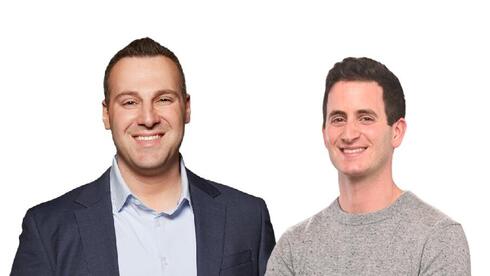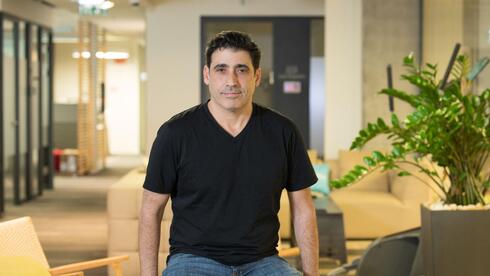
Mind the Tech NY
Palo Alto's Nir Zuk: “The cybersecurity market is shifting because of AI”
The industry veteran explains why standalone security startups will struggle, why he’s investing in fintech and defense tech, and why Israel remains a prime target for innovation.
Nir Zuk - Mind the Tech NY
(Tomeriko - Live Focus)
Nir Zuk, the founder and CTO of cybersecurity giant Palo Alto Networks, has never been one to follow conventional wisdom. Over the last four years, since returning to Israel after two decades in California, Zuk has invested nearly $150 million in Israeli startups, including fintech, health tech, and defense tech. Speaking at the Mind the Tech New York conference, he explains why he is doubling down on Israeli tech despite geopolitical risks, how cybersecurity is undergoing a fundamental shift, and why Israel’s entrepreneurs may need to look beyond cyber for their next big opportunity.
Betting on Israel, despite the risks
For many, Israel’s current geopolitical climate might signal caution. But for Zuk, it presents an opportunity. “There is a higher risk in Israel, but that also means valuations are low,” he says. “It’s hard to raise money, so you can get a big chunk of a company for a relatively low amount of money. I’m taking that opportunity.”
Zuk, who has founded multiple successful ventures, believes that while the risk is undeniable, fears of a brain drain from Israel may be exaggerated. “I’m optimistic about fixing the geopolitical issue, but even if it keeps going in the direction it’s going now, leaving Israel is not as easy as leaving other countries.”
His investments go beyond cybersecurity, an industry where, due to potential conflicts of interest, he does not personally invest. Instead, he has backed ventures in finance, healthcare, and defense, sectors he sees as the next wave of opportunity. “Israel has a great advantage in fintech, health tech, and defense tech,” he says, pointing to the country’s robust financial and medical infrastructure and its cutting-edge military technology.
The end of standalone cybersecurity startups?
Zuk has strong views on the changing landscape of cybersecurity. The market, he says, is undergoing a major transformation—one that is making it increasingly difficult for startups to survive.
“The cybersecurity market is shifting because of AI,” he explains. “Customers are buying fewer point solutions. Once your brain becomes AI-based, the dependency on data means that data must come from the same vendor. It’s unlikely that companies will buy an AI-powered cybersecurity platform from one vendor while sourcing its data from another.”
This trend, he believes, will make it much harder for niche cybersecurity startups to thrive. “Cybersecurity startups have become so niche that it’s going to be very hard for them to receive high valuations, especially since for every niche problem, there are ten companies trying to solve it.”
Zuk argues that this shift is not unique to cybersecurity but is happening across multiple IT markets. “The world is becoming more closed systems from single vendors,” he says, comparing it to the automotive industry. “You won’t be able to buy a car from one vendor, its sensors from another, and the autonomous driving software from a third. The same is true for cybersecurity.”
Related articles:
- Palo Alto’s Nir Zuk: “$32B is hard to turn down, but Israel would have benefited if Wiz had gone public”
- Palo Alto Networks’ Nir Zuk: “The cyber market is maturing. Small companies have a problem selling standalone solutions that big companies provide”
- Why is Palo Alto's founder launching a low cost airline?
Advice for Israel’s next generation of entrepreneurs
With cybersecurity consolidating, Zuk suggests that Israel’s renowned 8200 alumni—many of whom typically go on to launch cybersecurity startups—should consider other industries. “Fintech isn’t yet fully platformized, so there’s still room for innovation. Healthcare is open to new solutions, and defense tech is a natural strength for Israel,” he says.
His own investments reflect this philosophy. One of his latest ventures is an AI-powered pension brokerage that recently became the first Israeli company to receive a U.S. Securities and Exchange Commission broker license. He is also behind a digital bank in Israel, set to open to the public soon, which he hopes will bring a more U.S.-style banking experience to the country.
And while some Israeli entrepreneurs dream of high-profile exits, Zuk wishes more of them would take their companies public rather than selling early. Referencing Alphabet’s recent $32 billion acquisition of Israeli cybersecurity firm Wiz, he notes: “They did a great job convincing Google they were worth a hundred times revenue. But I wish they had gone public. That would have been better for Israel.”
The most important lesson in business
Zuk, who has spent decades building and investing in successful companies, has one fundamental piece of advice for entrepreneurs: focus on the team. “The best advice I ever received? An A-team with a C business plan is better than a C-team with an A business plan. The business plan will come, but the team is everything.”
Watch his full remarks in the video above.
First published: 22:09, 26.03.25
















